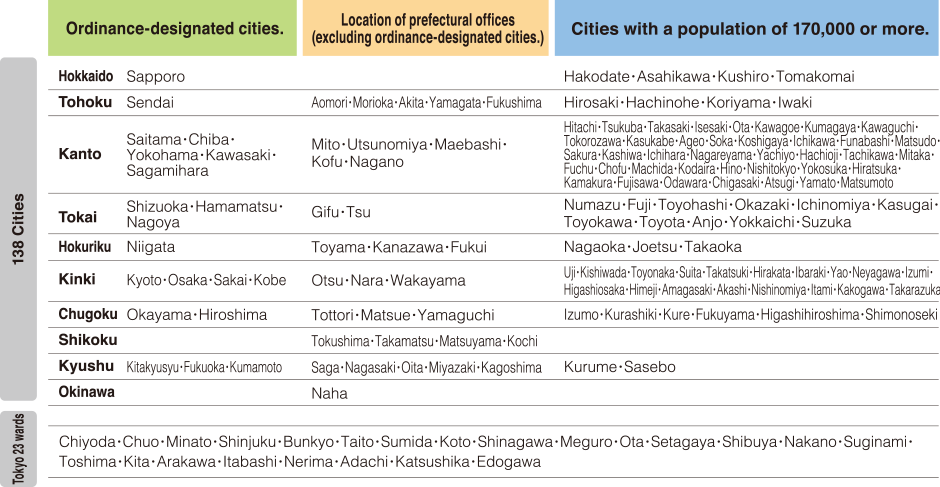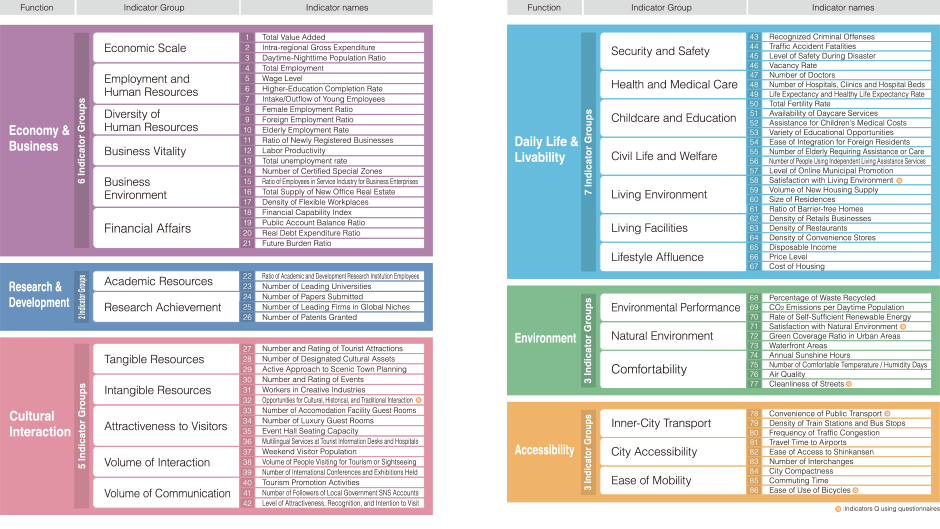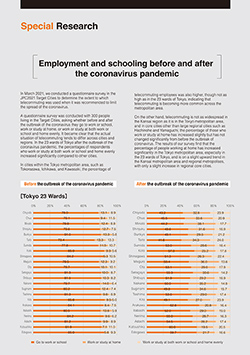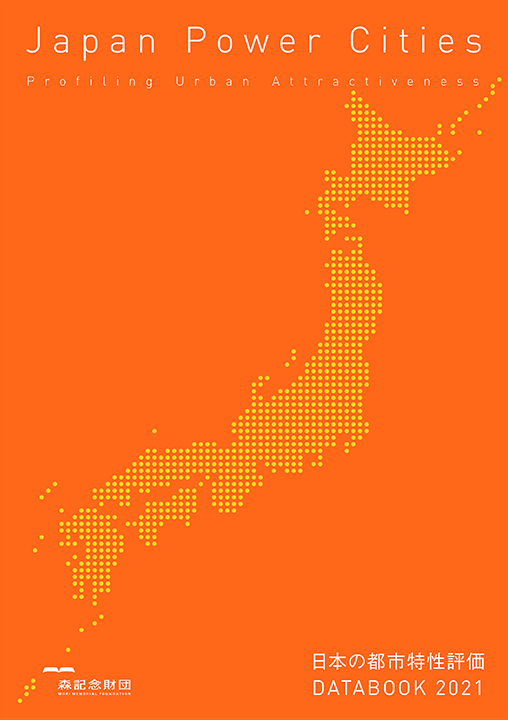Japan Power Cities 2021 Summary
This is a summary version of "Japan Power Cities DATABOOK 2021." Introduced are partial results and analysis for 2021 using easy-to-understand charts, as well as indicator definitions.
While the world’s population is predicted to continue growing in the years ahead, the population of Japan is expected to shrink rapidly as a result of a declining birth rate and an aging society. In facing such circumstances head on, cities across Japan, in order to maintain their dynamism, must harness their respective characteristics and push ahead with urban development, while maintaining the ‘magnetism’ required to attract people and companies, as well as the ‘growth potential’ that continually demonstrates their urban appeal and strengths. For this to be achieved, cities need to gain an objective understanding of their own strengths and then formulate and execute an urban strategy plan for the next generation. As part of ‘Japan Power Cities–Profiling Urban Attractiveness’, a study was carried out on the major cities of Japan to be able to conduct comparative and multi-faced analyses of city strengths based on quantitative and qualitative data and to shed light on city characteristics such as strengths and attractiveness.
Japan Power Cities 2021 Summary
This is a summary version of "Japan Power Cities DATABOOK 2021." Introduced are partial results and analysis for 2021 using easy-to-understand charts, as well as indicator definitions.
138 Japanese cities and the 23 wards of Tokyo were included as target cities in this study. For the 138 cities, the selection criteria were set as follows and the cities were selected:
1. Ordinance-designated cities.
2. Location of prefectural offices (excluding ordinance-designated cities.)
3. Cities with a population of 170,000 or more.

In Japan Power Cities, 6 functions (Economy & Business, Research & Development, Cultural Interaction, Daily Life & Livability, Environment, and Accessibility) were created to represent the components of cities. Furthermore, 26 indicator groups were established to represent the primary components of those functions, with 86 indicators finally being determined.

In order to further clarify the strengths and attractiveness of the target cities, the characteristics of each city were visualized using radar charts and graphs.
In the Data Book, the characteristics of each city are shown in various forms, including through the following radar charts.
Special Research
Employment and schooling before and after the coronavirus pandemic
In March 2021, we conducted a questionnaire survey in the JPC2021 161 Target Cities to determine the extent to which telecommuting was used when it was recommended to limit the spread of the coronavirus.
Details of this survey can be found in the summary version and on the following pages.


For enquiry about Japan Power Cities 2021, please contact to iusall[AT]mori-m-foundation.or.jp